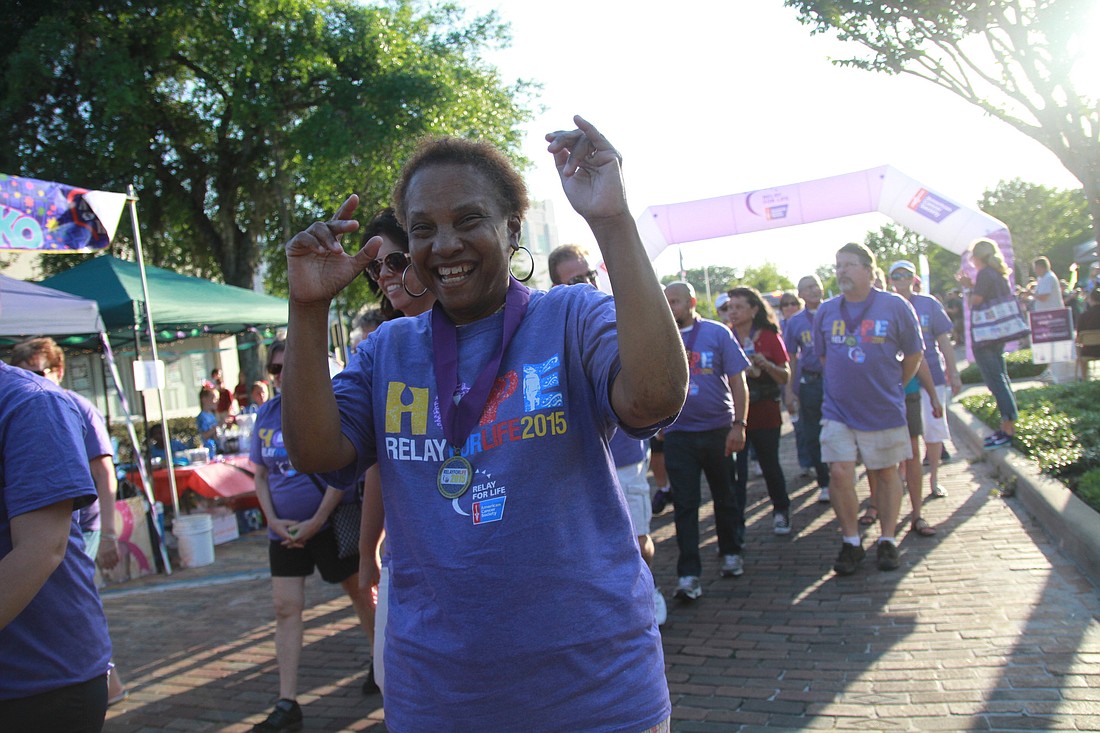- April 22, 2024
-
-
Loading

Loading

They thought it was just the flu.
Twelve years ago, Keillian Carpenter and his friend grew sick. For three weeks, they suffered from lethargy. And both their parents assumed it was the flu.
“We were both really good friends throughout our whole childhood,” Carpenter said. “And we both just got really sluggish. We felt we had less energy, just flu-like symptoms, and that’s kind of what it was written off as by both our parents. So we were like that for about two or three weeks. We started missing school, and we were both very involved with sports, and we just weren’t on top of our game.”
When her friend was finally taken to the doctor, the doctors immediately realized something was very wrong when they saw the color of his blood. After some more tests, he was diagnosed with leukemia.
Days later, Carpenter also was diagnosed with leukemia. They went though their cancer battles together, but in the end, his friend didn’t survive.
“I didn’t join the American Cancer Society and Relay for Life for myself or for my own celebration,” said Carpenter, a Winter Garden resident who has volunteered with ACS for 12 years. “It was for him. We were diagnosed at the same time, but he lost his battle. He went into remission, but then he lost his battle with cancer in his junior year of high school. So this has always been to keep his memory alive and to also make sure no mother or father ever has to lose their child again.”
Carpenter now serves as the event lead for the West Orange Relay for Life, which is hosted by the American Cancer Society and aims to fundraise to support cancer research and programs that provide resources for cancer patients.
Thirty countries participate in the community-based events, which also celebrate cancer survivors and remember lost loved ones. At the relays, teams and individuals to camp out at a school, park or fairground and take turns walking or running around a track or path. Each team has at least one participant on the track at all times and participates in fundraising in the months leading up to the event.
In 2017, United States-based Relay for Life events raised a total of $230 million. About $6.3 billion has been raised in the U.S. since the movement was founded in 1985. And all the money contributes to the organization’s life-saving research and programs, Carpenter said.
“The research is such an amazing part of the (ACS)," Carpenter said. “There are many cancer-research foundations, but (ACS) stands apart from those charities because of all the programs we offer, like the Road to Recovery program. When (ACS) noticed people were missing treatment sessions or doctor visits because they didn’t have vehicles or the means to put gas in their car to get their treatments, they started a program that allows volunteers to go to your house, pick you up and take you to your doctor and chemotherapy visits.”
The organization also provides housing for patients and their caregivers for those who need cancer treatments at a specific location to help them save on hotel and/or commuting costs.
“They also saw the need for housing,” he said. “Like here, in Gainesville and Tampa, or Texas which is currently a huge hub for cancer treatment. But not everyone who needs treatment in those specific areas lives locally, so ACS opened the American Cancer Society Hope Lodge program, which houses cancer patients and their caregivers so that they’re closer to their needed treatments without dealing with the cost of commuting or hotels. ... Those programs benefit patients just as much as the research does.”